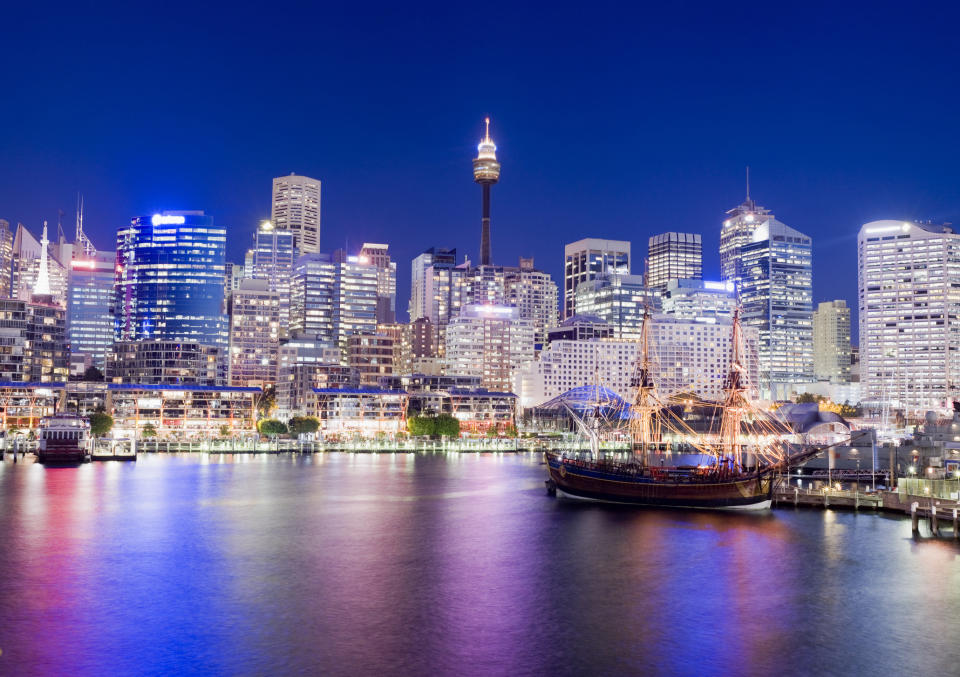Sydney's lock-out laws have repelled 3 million visitors and $1.4bn profit

Sydney’s controversial lockout laws have resulted in thousands of jobs lost, a crippled live music and performance sector, and nearly half a million less visitors every year, according to a new report by the City of Sydney.
In a submission to the inquiry into Sydney’s night-time economy, the City of Sydney said the “negative sentiment” around the lockout laws – enforced in 2014 after a spate of alcohol-related fatalities – among both locals and tourists had “stunted business investment”.
The city council wants to totally scrap the laws that mandate the 1:30am lockout time, 3am deadline for last drinks for bars and clubs, and 10am closing time for bottle shops.
“The unintended negative impacts of the current policy approach to address alcohol-related violence is risking the growth and sustainability of Sydney’s night-time economy,” the submission read.
“Negative public perception” following the announced lockout laws have meant there are fewer venues to choose from, and more restaurants and entertainment businesses are closing their doors early.
Related story: Is the price of alcohol in NSW set to skyrocket?
Related story: Sydney’s controversial lockout laws to be reviewed
Related story: Is this the end of Sydney's lock-out law?
The City of Sydney said the current policy approach had seen a 7.1 per cent reduction in the economy and a “potential opportunity cost” of over 2,000 jobs and $1.4 billion in turnover lost.
Sydney has also seen roughly half a million fewer tourists under 35 years old each year since 2013, which comes to about nearly three million fewer international visitors to the city between 2013 and 2018, according to the submission, citing 2019 research from Tourism Australia.
Drink businesses have reduced by 44 per cent since 2014, and there has been a 51 per cent drop in late trading restaurants trading after midnight across the CBD and Kings Cross, said City of Sydney.
Not only this, but the live music and performance sector has also taken a hit, and along with it “Sydney’s reputation as a dynamic and global city”.
While there has been a 12.2 per cent decrease in alcohol-related non domestic assaults in Kings Cross, this is largely because there is less foot traffic to begin with, the submission said.
The City of Sydney urged the NSW government to consider a “broader view of the night-time economy” as being a social space where diverse community needs were met, which would then attract more people, break down social barriers and promote community cohesion.
“Sydney must seek to proactively develop a vibrant, diverse and safe night-time economy to remain globally competitive in attracting and retaining talent,” the submission said.
“Vibrancy at night is also essential to attracting tourists, contributing to the $21 billion tourism industry in the City of Sydney.
“A whole-of-government approach and focus is required for Sydney’s night-time economy to reach its full potential.
“There must be an appropriate balance between public safety, residential amenity and economic growth.”
Lockout law supporters call for more stringent laws
The medical industry has been supportive of the lockout laws, with submissions from various medical- and health-related associations citing the reduction in alcohol-related violence and the priority of public health over industry profit as reasons for why the lock-out laws should be maintained or even extended to Star City and Barangaroo.
A number of the submissions, such as from St Vincent's Health Network Sydney, the Royal Australasian College of Surgeons, claimed that the lockout laws had minimal economic impact.
The Royal Australasian College of Physicians’ submission to the Sydney night-time economy inquiry pushed for a minimum floor price on alcohol that would further strengthen alcohol-related assault prevention measures.
“While alcohol related violence in Sydney’s CBD and Kings Cross has been drastically reduced – now is not the time for complacency,” said RACP drug and alcohol expert Paul Haber.
“Setting a floor price on alcohol reduces the availability of cheap alcohol, decreasing alcohol consumption and problematic drinking patterns.”
A report from Deloitte from earlier this year estimated the lockout laws had cost the Sydney economy $16.1 billion.
Make your money work with Yahoo Finance’s daily newsletter. Sign up here and stay on top of the latest money, news and tech news.

 Yahoo Finance
Yahoo Finance 
